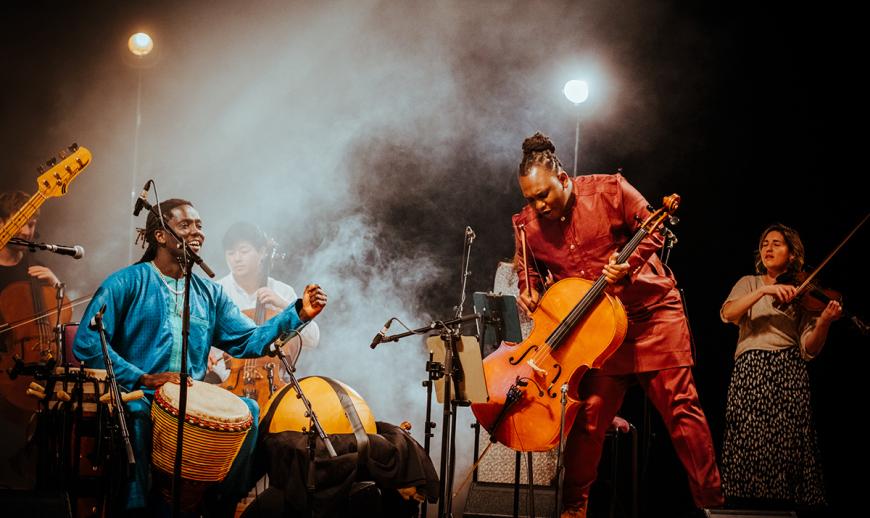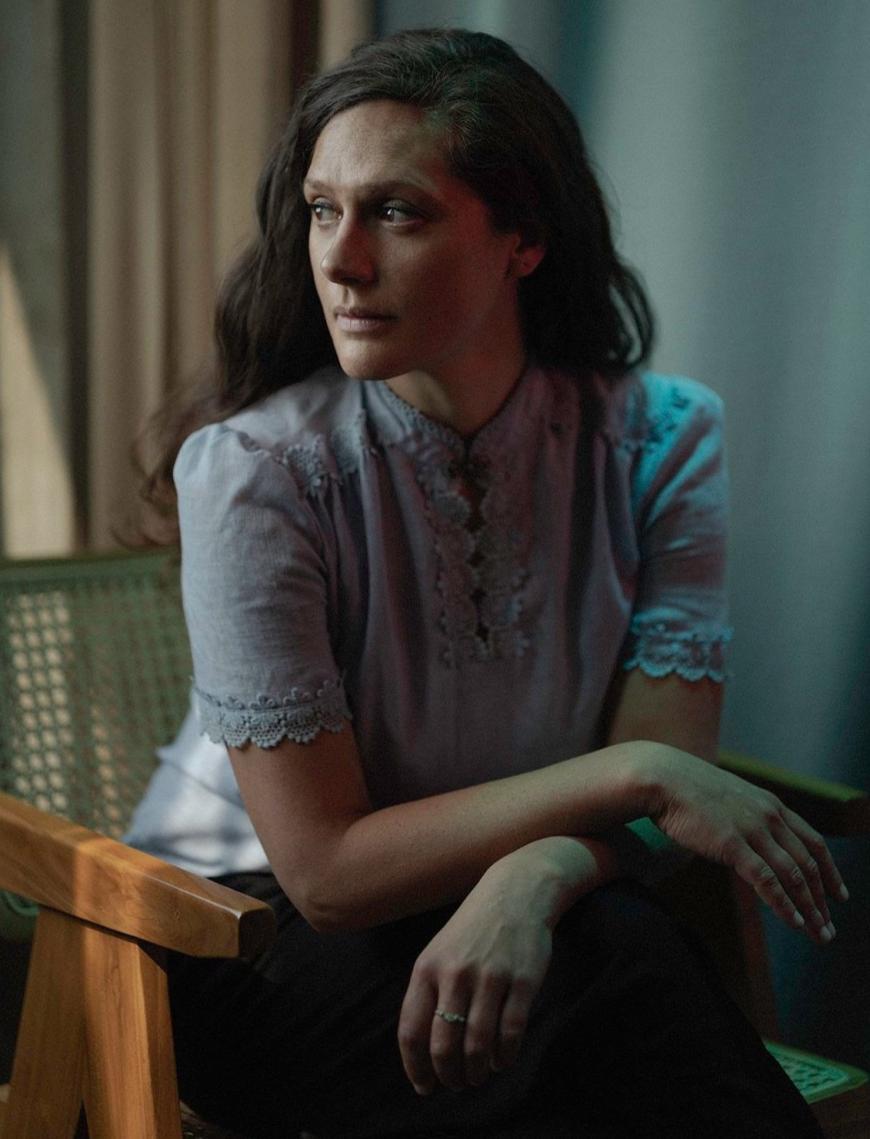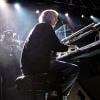
When some creative groups employ the term “collective,” it’s about as convincing as a potential employer boasting that co-workers are “family.” With the 8-year-old Manchester Collective, however, the principle is both in its moniker and at the heart of its music.
The creatively adventurous strings-and-percussion ensemble from Northern England makes its West Coast debut this month, including performances on April 13 at Stanford University’s Bing Concert Hall and on April 14 at The Baker-Baum Concert Hall in San Diego. Rising superstar Abel Selaocoe is highlighted in the marketing for both shows, but the South African cellist is a member of the ensemble as far as the Collective is concerned.

“Abel’s career has taken off as a soloist. But he collaborates with us,” said violinist Rakhi Singh, who is the Collective’s Artistic Director. Singh co-founded the group in 2016 with cellist Adam Szabo, who became director of the BBC Philharmonic in February. Also in 2016, Selaocoe jump-started the similarly pan-genre trio Chesaba with Collective bass guitarist Alan Keary and percussionist Sidiki Dembélé.
Selaocoe and Szabo were classmates at the Royal Northern College of Music in Manchester along with Singh’s sister, violinist and Collective member Simmy Singh. “When we were planning our second season, Simmy suggested that we do something with Abel,” Rakhi Singh explained in a Zoom interview from her home in London.
“He didn’t have this huge career at that point and was exploring his own musical voice,” she continued. “So we put together this program featuring music he’d written and [that] really came from the basis of basically being family and friends.” Violist Christine Anderson rounds out the Collective’s lineup for this tour, though the group has a flexible instrumentation depending on the season and even the particular program.
Selaocoe, a cellist, vocalist, and body percussionist, has since commanded spotlights and column inches as a curator for the BBC Proms in 2021 and soloist with the likes of The Saint Paul Chamber Orchestra, the BBC Concert Orchestra, and the New London Orchestra. His penchant for improvisation and soliciting audience participation and his enthusiasm for drawing from non-Western musical traditions matches Manchester Collective’s mission statement, to “create radical human experiences, inspired by the music that we love.”
The Collective’s current tour, Sirocco, is based on the programming first developed in 2019 with Selaocoe as guest director. “It’s a mixture of South African music, which are Abel’s compositions, and also music from the Ivory Coast, where Sidiki is from,” explained Singh. “And in addition to a variety of African music, there’s usually some sort of Western folk, usually from the Danish String Quartet book.”
The European classical canon is represented, too, reflecting the roots and training of the Collective’s musicians. With the repertoire flexibility of a jazz or jam band, they might play a selection from Haydn or one by a living artist such as Danish composer Hans Abrahamsen or Albanian singer-songwriter Eriona Rushiti. “It’s a real mixture of styles, but we weave them together,” Singh said. “So audiences experience both a type of time travel and also a geographic journey.
“And with all of the collaborations we do, it’s really important to me that everyone has their moment to shine or can be their whole selves,” she went on to note. “If it’s all about one person and everyone else is a backing band, that doesn’t interest me. So what you get is a whole experience of everyone onstage, and it’s much more empathetic and a much richer experience for all of us musicians and also the audience.”
Singh and Szabo started the Collective in order to perform and present music in new ways. As Singh recalled, “We were playing in orchestras and in groups and realizing we didn’t have the creative outlet that we wanted.
“I’d been in a string quartet, so I had a certain amount of creativity there,” she continued. “But I’d program for music societies, and they would say, ‘Oh, no, we can’t have that Brahms because we had it two years ago.’ You’re just sort of banging your head against a proverbial brick wall.”

The Collective has also booked atypical venues, including a nightclub in Manchester. It’s helped draw both new and, perhaps surprisingly, traditional audiences: “Sometimes people who normally would come to the concert hall to see us come to the club, and they love it,” Singh reported.
But that good feeling seems to be a trademark of Collective performances, regardless of venue. “With this Sirocco show, I feel it’s full of joy for both us and the audience,” Singh said. “There are times where you might be challenged, but then you’ll be comforted afterward. So while on the surface it feels quite different, it’s actually incredibly stimulating for people. And it makes them feel good.”
As a multimedia organization, the ensemble also considers its other collaborators and staff as members of the Collective and lists production, lighting, sound, photography, and editorial contributors on its team page.
“I think it’s about recognizing the work,” Singh concluded. “The performers on the stage are like the cherry on top of the cake. So many people have done all of the hard work to get us there, and it’s acknowledging all the people who are working furiously behind the scenes, helping us organize everything and creating opportunity for us.
“It feels really nice to acknowledge that we couldn’t exist without each other. The larger you get, the easier it is for there to become a divide between management and players. So we try to keep close.”




